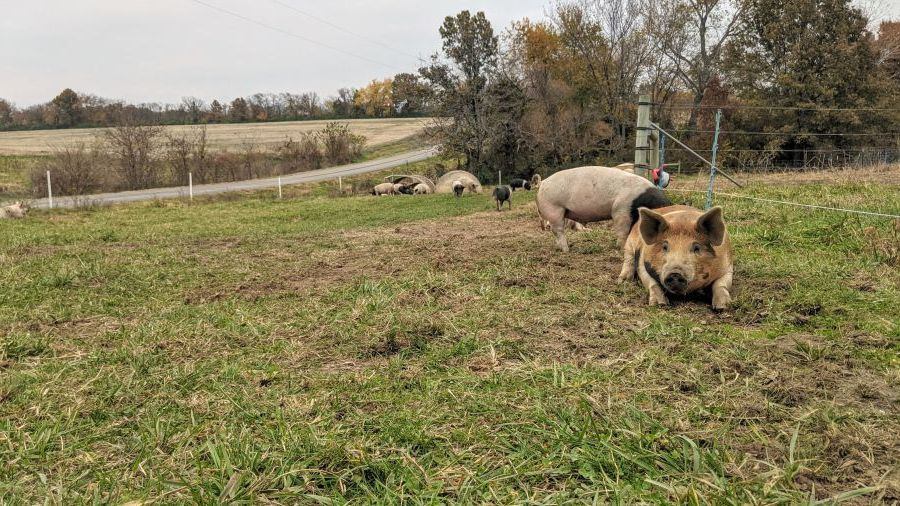A Christmas Letter From Your Farmer {2023}
posted on
December 23, 2023

Good morning and Merry Christmas to you all!!! 🙋♂️
I hope your weekend is full of family, friends, and, of course, FOOD!
As you open this, we are headed to visit my parents - the first farmers of David's Pasture. In 2011 they bought 10 acres with a run-down farmhouse, and with the help of their 7 children (now 11,) slowly began building this family farm.
During the early years of this adventure, Dad worked outside jobs to support our family while the farm got off the ground. There wasn't much left over for Christmas at the end of the year, but they always found enough to get us each a nice gift.
But if there's one gift from my parents that I appreciate the most, it's sharing the reason why we celebrate Christmas in the first place.
You can't open it, play with it, or even touch it, yet it is the greatest gift on earth. It's the reason we can love, have hope, and greet each day with joy - regardless of what it holds.
It's the gift of Jesus Christ, who gave himself to bring abundant life to all who trust in Him.
The impact this gift has had on my life can not be computed. I would not be the same today without it. I hope that you have experienced the love of Jesus in your own life. If you haven't, please reach out to us as we'd love to share it with you.
The next best gift my parents gave to us was themselves. They sacrificed much of their own lives to pour into their children; to invest in the next generation.
It's not a few big things my parents did that shaped me, but a culmination of many small things. Things that to them may have seemed insignificant at the time, were to me a massive display of their love.
So my encouragement to you this holiday season is this: the greatest gift you might give to someone this year is yourself. Be present, be loving, and enjoy your time with people knowing that you are making an impact in their lives.
From the families at David's Pasture, have a very merry Christmas!
Your farmer,
Remi Kesten



